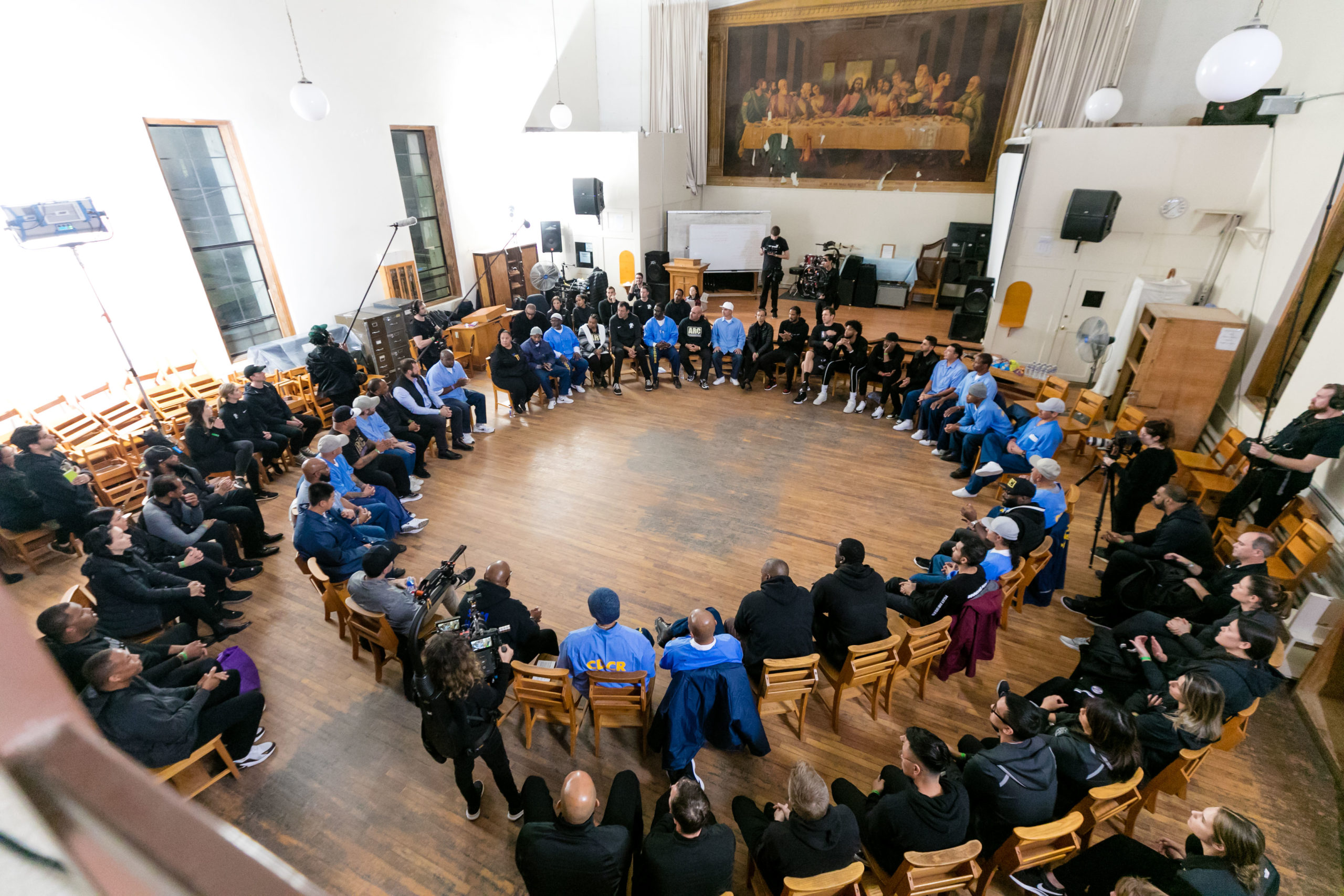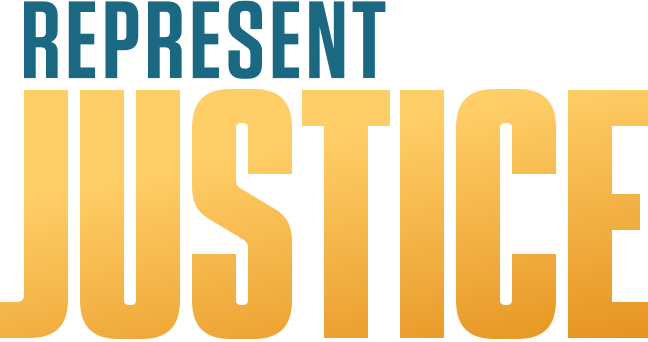Represent Justice’s year in review: Changing the narrative around incarceration in 2020 and beyond

We began more than a year ago as a campaign for the Warner Bros. film JUST MERCY, engaging and activating audiences around the themes at the heart of the film: hope, redemption, and the injustice that pervades in the U.S. legal system. In partnership with community organizations, activists, elected officials, athletes, celebrities, and artists, we harnessed the compelling, true story of Bryan Stevenson and Walter McMillan to spark conversation and ultimately, drive action that helped lay the groundwork for policy reforms.
Represent Justice accomplished this with over 655 public engagement events around JUST MERCY, including 495 theatrical and virtual film screenings. These screening events have reached an estimated 65,000 people. Through our screenings, we also reached elected officials, artists, athletes and business leaders, convening influential people across all cultural sectors to rally support for criminal justice advocacy. We saw this in action with a groundswell of legislative reform in California, Ohio, and Michigan — each states where we engaged policymakers around the film.
We also partnered with the NBA on Play for Justice, the league’s first program about criminal justice reform. Play for Justice — produced by Plus One Society and partners including the Anti-Recidivism Coalition and Prison Fellowship — brought NBA teams inside prison facilities for a day for a game of basketball and intimate roundtable roundtable discussions with those incarcerated to highlight stories of hope and redemption.
The Los Angeles Lakers, Sacramento Kings, Milwaukee Bucks, and Cleveland Cavaliers participated, forging a connection between the sports world and criminal justice advocacy. The discussions not only brought encouragement to those currently incarcerated, but they also brought the players, coaches and elected officials proximate to the system, often for the first time, to generate real change. After our Play for Justice event with the Milwaukee Bucks, Wisconsin Gov. Tony Evers announced that reforming the state’s justice system would be his top priority for the year, and SB 256 passed in Ohio, ending the practice of sentencing juveniles to life in prison without the possibility of parole.
We’d hoped to continue Play for Justice throughout 2020, along with a number of other in-person events and engagements, but in March our worlds changed forever. The global COVID-19 pandemic grew rapidly, and we knew people in prison would experience a disproportionate burden, so we pivoted our efforts as a campaign to help them.
Recognizing the pressing need for protective equipment in jails and prisons, Represent Justice donated more than 27,000 masks to 7 detention facilities across the country. We also created a one-of-a-kind tool used by over 3,000 people to simultaneously call, email, and Tweet at their local sheriffs and governors to ask for compassionate release measures. We also launched the Hope & Inspiration series, a collection of conversations over Zoom recorded for incarcerated audiences as in-person visits and programming have been shut down. Our conversations have featured our leadership, ambassadors, elected officials and artists including Common, reaching an estimated half a million incarcerated people per conversation.
We also established an Emergency COVID-19 Relief Fund, and through two rounds of grantmaking, we have distributed $125,000 to dozens of local organizations led by system-impacted individuals that are working tirelessly to protect the health of currently and formerly-incarcerated people.
As we neared one of the most decisive elections of our lifetime, we unveiled Free Our Vote, a voter toolkit for the system-impacted community. Our ambassadors reflected a need for resources to support system-impacted people through the voting process, so we created a guide that not only tracked the history of felony disenfranchisement, but also broke down the roles of electable positions that are key to shaping local justice systems, and laid out the process of voting and registering step-by-step.
We’ve accomplished so much over the course of the last year — from hosting trainings for journalists around how to talk about incarceration to working with the Justice for Julius campaign to free an innocent man on death row — but our real achievement has been in centering and elevating system-impacted people in all of our work as Represent Justice. The voices, experiences and expertise of our 16 formerly incarcerated Ambassadors are at the heart of our events, and instrumental in shaping our goals and strategies.
As we continue on into 2021 as a full-fledged organization, we’re committed to continuing the work of shifting the narrative around incarceration and those impacted by it.
At its core, Represent Justice is about using the power of media to engage audiences in reimagining the justice system, and creating the demand for change. We want to harness the power of storytelling to bring about a fair legal system, dignity for system-impacted individuals and communities, and an end to extreme sentencing and mass incarceration.
As we usher in a new presidential administration, we’re hopeful that our vision for a new, fairer legal system will come to life. We’ll do our part by telling stories of hope and redemption, bringing policymakers proximate to the injustice in the legal system, and continuing to center those most impacted by the legal system.
